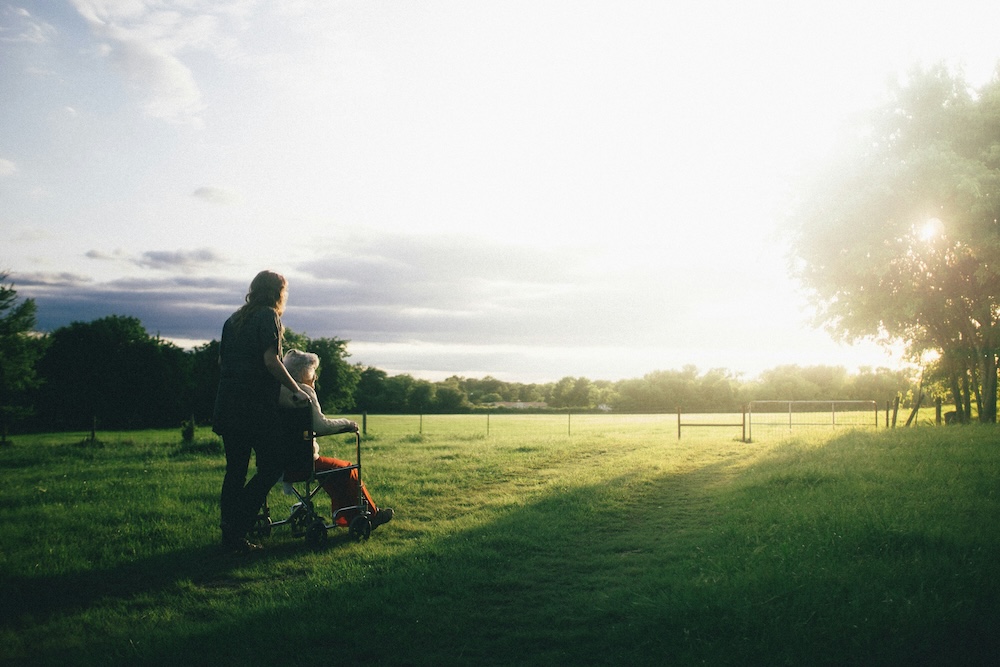Gareth Clubb asks whether the time has come for personal carbon trading to tackle climate change
Anyone who has studied natural resource management will have Garret Hardin’s theory of the Tragedy of the Commons imprinted on their brain. The example Hardin used in 1968 to exemplify his theory runs something like this:
- Picture a pasture that is common land, available for twenty herdsmen to graze their cattle.
- Acting rationally, it is in each individual herdsman’s best interests to maximise the number of cattle he grazes. This is because for each head of cattle added, the benefit (+1.00) is individual to the herdsman, while the disbenefit (in terms of overgrazing and degradation of the pasture) is shared among all herdsmen (-1/20 or -0.05).
- The only sensible conclusion of each herdsman is that he should add another animal to his herd, with a net benefit of 0.95. And then another, and another…
- But this same conclusion is reached by every other herdsman sharing the commons, each acting rationally.
“Therein is the tragedy. Each man is locked into a system that compels him to increase his herd without limit—in a world that is limited. Ruin is the destination toward which all men rush, each pursuing his own best interest in a society that believes in the freedom of the commons. Freedom in a commons brings ruin to all”.
|
Tomorrow Welsh economy needs a shove John Osmond asks whether we should be putting ‘green’ aspirations on the back burner while we catch up with the rest of the UK. On Saturday Calvin Jones and Martin M. Jones argue that our future relies on learning to live with the sunshine that comes today. |
Less well known to most students is that Garret Hardin extended his metaphor to pollution:
“Here it is not a question of taking something out of the commons, but of putting something in – sewage, or chemical, radioactive, and heat wastes into water; noxious and dangerous fumes into the air, and distracting and un-pleasant advertising signs into the line of sight. The calculations of utility are much the same as before. The rational man finds that his share of the cost of the wastes he discharges into the commons is less than the cost of purifying his wastes before releasing them. Since this is true for everyone, we are locked into a system of ‘fouling our own nest’, so long as we behave only as independent, rational, free-enterprisers”.
There is no commons greater in import and abundance than our atmosphere, oceans and climate. But the abundance of that commons has misled humanity into thinking that it can absorb unlimited pollution in the form of greenhouse gas emissions. We are indeed locked into a system of ‘fouling our own nest’.
The tragedy of the climate commons appears to hold true at both an individual level and a nation state level. As rational actors, why should individuals voluntarily curb their excesses? There are plenty of people for whom the weekend trip to Barcelona or Prague is part of their full enjoyment of life. After all, the plane is going anyway, and one person’s contribution makes no difference in the face of China’s coal-fired power stations, doesn’t it?
The problem is that every person who has the means to consume excessively has the same incentive to increase their personal utility while sharing the burden of their consumption over the 7 billion inhabitants of the planet. So going back to our equation for the herdsmen, the net benefit for our wealthy consumer is +1, because the shared disbenefit of 1/7,000,000,000 is as good as nil.
And at a nation state level, increased consumption by the population (represented by GDP) is commonly conflated as benefit. Why would a nation state – at least, one with a government seeking re-election – want to reduce benefit for its own citizens when the disbenefit of excess consumption is shared between 193 nation states. Net benefit for each single state? 0.995.
Almost inherent in the definition of tragedy is inevitability. Does that mean that the climate tragedy is inevitable? We can look back at 1968 for some of the answers.
“We have several options. We might sell [commons] off as private property. We might keep them as public property, but allocate the right to [use] them. The allocation might be on the basis of wealth, by the use of an auction system. It might be on the basis of merit, as defined by some agreed-upon standards. It might be by lottery. Or it might be on a first-come, first-served basis, administered to long queues. These, I think, are all the reasonable possibilities. They are all objectionable. But we must choose – or acquiesce in the destruction of the commons”.
There are good reasons to rule out most of these options as impracticable or manifestly unfair. But one which has a tantalising degree of implicit fairness is an allocation for use, but based not on wealth, auctions or lottery. It would be based on our existence as one of 7 billion people with equal right to use that commons, and acknowledging the rights of future generations to be able to enjoy the benefits of a benign climate.
It’s called personal carbon trading. People who use less carbon (in the form of electricity, gas and petrol) can sell their allowances to those who want to use more than their equal share. And the total amount of carbon emitted is in the control of government, which will bring down the emissions in line with science. Back in 2008 the Environmental Audit Committee had this to say about personal carbon trading:
“If the Government is to stand the slightest chance of meeting its 2050 carbon emissions target it cannot afford to neglect the domestic and personal sector. Reductions in carbon emissions from business and industry will be meaningless unless accompanied by significant and equal reductions from households and individuals. Existing initiatives are unlikely to bring about behavioural change on the scale required, with many individuals choosing to disregard the connection between their own emissions and the larger challenge. Personal carbon trading might be the kind of radical measure needed to bring about behavioural change”.
It’s a mechanism that has inherent appeal for people of a right-leaning persuasion because it’s a market based system with trading. And it’s a mechanism that has inherent appeal to those of a left-leaning persuasion, because fairness is built-in. Poor people, who are responsible for less carbon emissions than rich people, would receive payment from rich people for the right to use their excess allowances. A progressive control mechanism, disbursing wealth from those who have it to those who don’t.
With the limits on the Welsh Government’s ability to legislate and regulate in this area, we’re left with the UK Government to implement a policy that is one of the only ways to ensure humanity doesn’t breach the critical 2oC climate threshold. And will the UK Government act? Well, that’s down to people like you and me. The climate crisis means we need to take every opportunity to let politicians of all persuasions and at all levels know the importance of radical action now. The alternative would be the realization of Garret Hardin’s depressing prophesy:
“We must choose – or acquiesce in the destruction of the [climate] commons”.






Comments are closed.